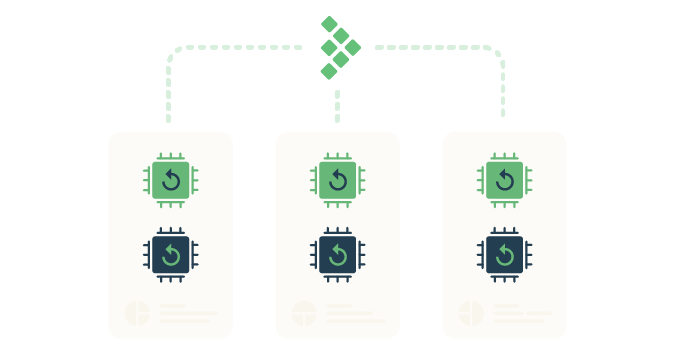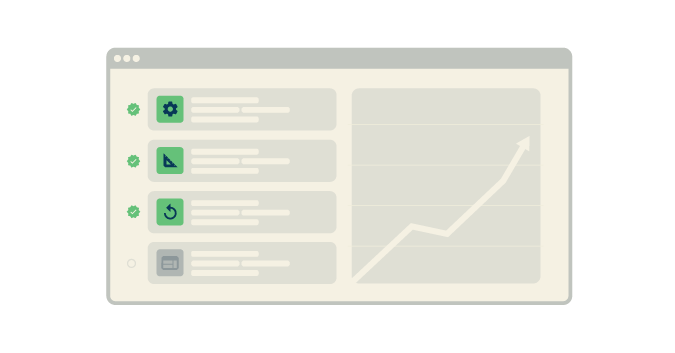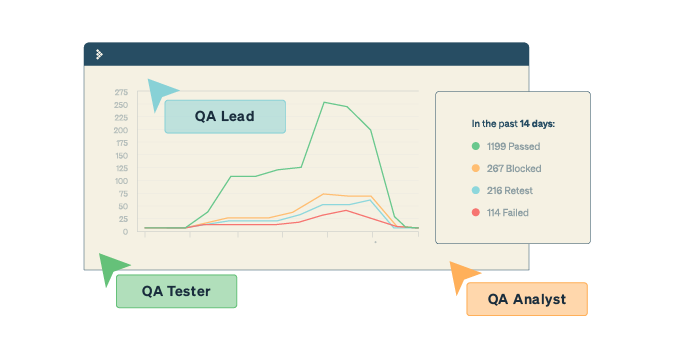This is a guest post by Rachel Kibler.
I’m an individual contributor at 1-800 Contacts. I get paid to test and to collaborate with my team and other teams, but my job duties end there. For people who know me, though, they know that’s not enough. I love engaging in the field of software testing and finding ways to improve. With no authority, however, this can be difficult.
My boss, Dwayne Green, is amazing. He knew when he hired me what I was excited about, and he encouraged me to thoughtfully consider what I wanted to do at the company. It started out piecemeal. After a few months, I introduced Lean Coffee. Dwayne had done it with the testers before, but there had been enough turnover that he was excited for me to try it. People liked it enough that we made Lean Coffee a monthly event. My boss thought it was a success in part because it wasn’t a mandated meeting from him, but rather a meeting put together by a peer.
Then COVID-19 hit. I felt disconnected from everyone. I sat with it for a month and then decided I could do better.
I introduced ensemble testing, also called mob testing. We worked on testing challenges, and people had fun and engaged. I asked if that should be a monthly activity as well, and the testers agreed. Since then, we’ve worked on API testing in a few ways, some other testing challenges, and performance testing. And another tester was inspired to introduce ensemble programming to work on our automation, though in a less formal way than our testing.
Occasionally, before I started, the testers would read a book and discuss it. I wanted us to get back into that, and I approached Dwayne with a request for a book club that he would pay for. I proposed reading Janet Gregory and Lisa Crispin’s book “Agile Testing Condensed.” He agreed, and the testers took it up. We read it all at once, which was a bit of a mistake, so we remedied it by reading Elisabeth Hendrickson’s “Explore It!” in three sections. Now we’re reading Nassim Nicholas Taleb’s “The Black Swan.”
The book club has the least engagement. It’s hard to convince people to take the time, and no matter how little I ask people to read, they don’t necessarily read the whole book. However, people are interested in learning, and having a book club once a month seems to be a reasonable amount of time for it.
Now that we had three events that were all monthly, it seemed to make sense that we should have some other activities for the rest of the month. I ran it past Dwayne, and we decided to do team building for an hour a month. These have been mostly free activities, usually playing online games. And with a fifth week once a quarter, I introduced RiskStorming. We’ve done it twice now, once with the Death Star and once with the Star Trek teleport. It’s been a smashing success, and people seem to be excited about it when it’s time.
It was a struggle to find time on a weekly basis when all the testers could be available, and Dwayne helped by creating a placeholder for the activities. He’s been supportive all the way through, giving me the resources and time I need, as well as the cheerleading.
Another way I’ve made a difference is by asking for what I want and need. I want to eventually be in leadership, and I recognize that the way women lead is rather necessarily different from the way men lead. Our CTO, Amy Larson, is a fantastic leader, and I approached her pretty soon after I started to ask her to mentor me in leadership. She’s given me support and opportunities, and I’m happy with how that has gone.
The takeaway for me has been that there are two crucial things for me to make a difference as an individual contributor: a supportive boss, and just asking for what I want. I think I could still make a difference if I didn’t have a supportive boss, but it would be a lot more difficult. The boldness is critical, though. Making a plan and executing it takes courage and a willingness to fail. The end result is worth it.




